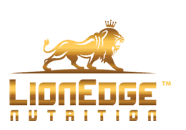More Gains With Betaine

You may hear the term “superfood” being thrown around for foods that provide a multitude of health benefits. Perhaps the mother of all superfoods is a unique organic vitamin and amino acid that occurs in plants. No, it’s not Popeye’s spinach. What the sailorman should have been eating is beets!
Betaine Anhydrous, also known as Trimethylglycine is a dietary component found in protein and fat-containing foods that adds structural integrity to cell membranes. In the last few years, betaine has shined in clinical studies for its ability to aid in both athletic performance and body composition.
Methionine
Betaine, like that found in Post Edge, is involved in the methylation and detoxification of homocysteine to form methionine. Methionine is an essential amino acid which plays a role in both protein and creatine synthesis. The methylation of homocysteine, resulting in increased plasma methionine, is the main proposed mechanism of how betaine may aid in muscle strength/endurance, muscle growth, and fat loss.
Increased levels of homocysteine have been linked to inflammation and impaired insulin signaling. By decreasing homocysteine levels, Betaine reduces inflammation and helps optimize insulin levels, which can further aid in muscle growth and recovery.
Betaine Research
A number of studies have found that Betaine leads to an improved sense of well-being, greater strength and endurance during recovery, and an increase in overall aerobic and anaerobic athletic performance.
One study found that athletes taking 1.25 grams of betaine twice a day increased their muscle strength by 25% and their muscle power by 20%. It was found that these subjects had a 10% greater increase in growth hormone, a 15% greater increase in insulin-like growth factor-I (IGF-I), and a 15% drop in cortisol levels following a weight workout as compared to the placebo.
Another study found weight-trained subjects taking 2.5 grams of betaine daily for two weeks increased the total number of reps completed in a bench press consisting of 10 sets by 7 reps. Another study (reported in “The Journal of The International Society of Sports Nutrition) had weight-trained males follow a weight-training program for 6 weeks. One group supplemented with 1.25 grams of betaine twice a day while the other group supplemented with a placebo twice a day.
Subjects supplementing with betaine increased muscle mass by 4 pounds and arm size by 10% while decreasing body fat by 7 pounds. The placebo group experienced no increase in muscle mass or arm size and no loss of body fat. There are other studies revealing the promising properties of betaine and more studies under way.
Betaine and Creatine
Betaine is highly synergistic when taken with creatine, both of which are included in Post Edge. By preventing the production of homocysteine, betaine leads to higher absorption/utilization rate of supplemental creatine because more of it can be used without being broken down and converted to creatinine.
Betaine supplementation has also been found to increase nitric oxide (NO) levels and act as an osmolyte to regulate cellular fluid volume, which could further promote muscle pump and overall muscle size, making it a crucial ingredient not only during post-workout periods but also the pre-workout period.
Given the above, I make sure to supplement with at least 1.25g Betaine pre-workout AND post-workout. Remember ladies and gentlemen, more gains with betaine!
References
- Effects of betaine on body composition, performance, and homocysteine thiolactone. Cholewa JM, Wyszczelska-Rokiel M, Glowacki R, Jakubowski H, Matthews T, Wood R, Craig SA, Paolone V. J Int Soc Sports Nutr. 2013 Aug 22;10(1):39
- The effects of chronic betaine supplementation on exercise performance, skeletal muscle oxygen saturation and associated biochemical parameters in resistance trained men. Trepanowski JF, Farney TM, McCarthy CG, Schilling BK, Craig SA, Bloomer RJ. Cardiorespiratory/Metabolic Laboratory, The University of Memphis, Memphis, Tennessee, USA. J Strength Cond Res. 2011 Dec;25(12):3461-71.
- Effect of betaine supplementation on power performance and fatigue. Hoffman JR, Ratamess NA, Kang J, Rashti SL, Faigenbaum AD. Department of Health and Exercise Science, The College of New Jersey, Ewing, New Jersey, USA. J Int Soc Sports Nutr. 2009 Feb 27;6:7.
- Ergogenic effects of betaine supplementation on strength and power performance. Lee EC, Maresh CM, Kraemer WJ, Yamamoto LM, Hatfield DL, Bailey BL, Armstrong LE, Volek JS, McDermott BP, Craig SA. Department of Kinesiology, University of Connecticut, Storrs, CT, USA. J Int Soc Sports Nutr. 2010 Jul 19;7:27.
- Betaine supplementation enhances anabolic endocrine and Akt signaling in response to acute bouts of exercise. Apicella JM, Lee EC, Bailey BL, Saenz C, Anderson JM, Craig SA, Kraemer WJ, Volek JS, Maresh CM. Human Performance Laboratory, Department of Kinesiology, University of Connecticut, Storrs, CT, USA. Eur J Appl Physiol. 2013 Mar;113(3):793-802.
- Low dose betaine supplementation leads to immediate and long term lowering of plasma homocysteine in healthy men and women. Olthof MR, van Vliet T, Boelsma E, Verhoef P. J Nutr. 2003 Dec; 133(12):4135-8.
- Influence of betaine consumption on strenuous running and sprinting in a hot environment. Armstrong LE, et al. J Strength Cond Res. 2008 May;22(3):851-60.
- Betaine supplementation enhances anabolic endocrine and Akt signaling in response to acute bouts of exercise. Apicella JM, et al. Eur J Appl Physiol. 2013 Mar;113(3):793-802.
